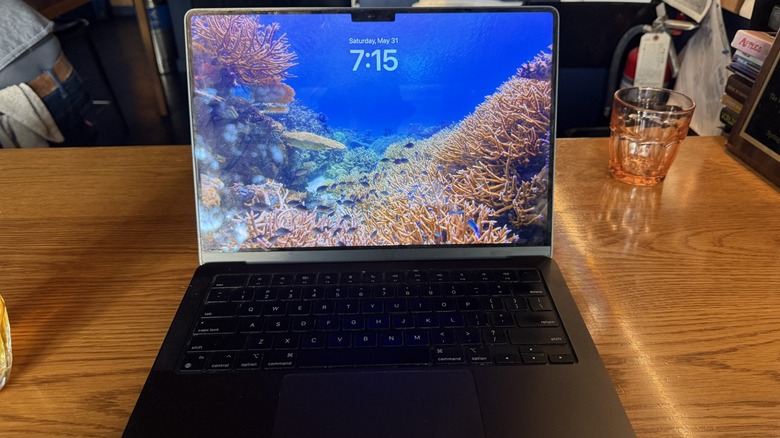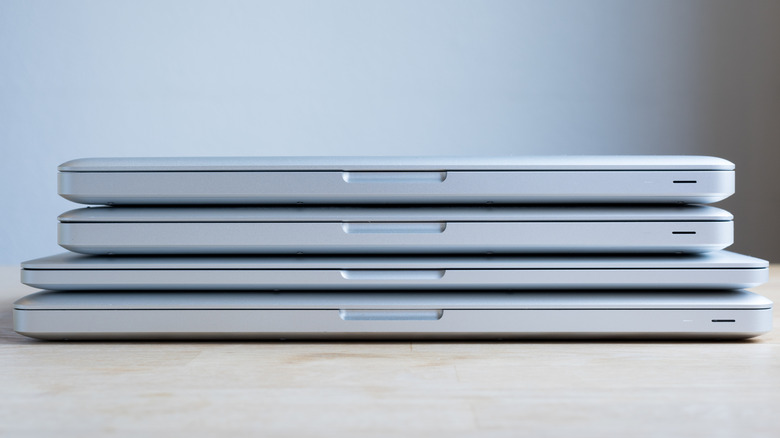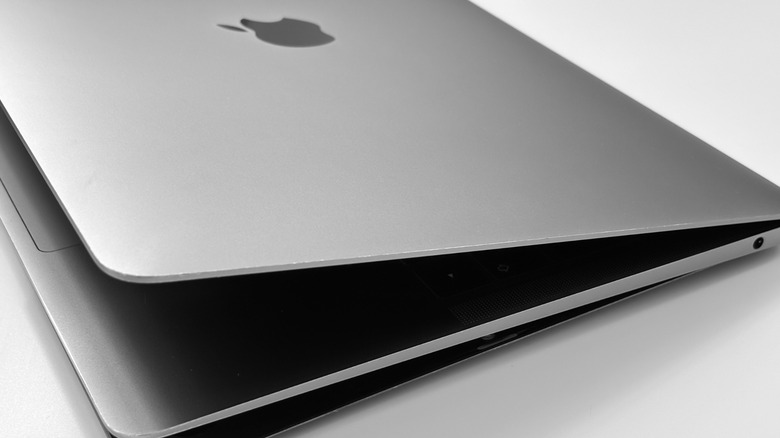Is Buying A Used MacBook Worth It?
We may receive a commission on purchases made from links.
In SlashGear's review of the 2024 M3 MacBook Air, we found no shortage of things to praise — including its top-notch display, excellent battery life, gorgeous design, and next-level design. However, we also noted that — despite all these perks — it's hard to justify the cost of the MacBook Air if you don't need a laptop with so much power and visual flair. Where does that leave people who want the best laptops available, but who can't afford the high price tags associated with them? Especially if you're like me, who is not only in this situation, but is also deeply embedded in the Apple ecosystem.
From personal experience, as someone who has used Apple laptops for over two decades, from PowerBooks to MacBooks — the best advice I can give is to buy a preowned MacBook. I've owned both new Apple laptops and used ones, and after years of experience with both, I can say that a new MacBook and a used MacBook are virtually indistinguishable — if you put in a little effort and choose the right pre-owned computer. That can be a pretty big if, so it's important that you choose wisely if you want to find a used MacBook worth purchasing.
Not all used MacBooks are the same
There's more than one way to buy a used MacBook. While I've never personally bought one off eBay or Facebook Marketplace, I still wouldn't recommend it. Sure, you might get a solid computer for a great price from someone just looking to unload it, but there's no way of knowing if what you're getting works the way it should or has significant hardware or software issues. I once bought a used 2011 MacBook Air from a friend (in 2013) and the computer lasted me nearly 7 years before it was unusable, but my friend wasn't trying to rip me off and the device itself was barely 2 years old when I started using it.
Unless you find yourself in similar circumstances, the smart thing to do is to buy a renewed or refurbished MacBook from a reputable retailer, whether it's Amazon, Best Buy, or Apple itself, which offers several refurb models on its online store. Sure, these computers have been used by someone else — but they've been restored to factory settings and checked by experts to make sure they still work as intended. You're getting a nice discount for a laptop that's been professionally tested, just as a new one would.
There is also a difference between open box and refurbished electronics, and if you find a good deal for an open box MacBook, it's likely to be nearly as good as new. In general, though, if you want a used laptop that performs almost as well as a new one, you should be purchasing it from a known seller as opposed to an unknown one. Finally, the more RAM and other specs you can boost, the more you can future-proof your used laptop so it'll last you longer.
Which used MacBooks should you avoid?
Another important consideration besides who you buy from is how old the computer is. I've owned both brand new, straight off the assembly line MacBooks (Pro and Air) as well as used and professionally refurbished ones. Perhaps more important to me than who was selling the computer was how old it was — eventually the hardware of a MacBook is too antiquated to handle the latest OS updates.
Whether it's an iPhone or a MacBook, at some point Apple (just as any company would) stops providing software updates for products that are simply too old. That's exactly why older products are typically cheaper — even if they were state-of-the-art when they launched, they won't be once newer models are released. That's exactly why I would opt for MacBooks that were released as close to the current date as possible. You might end up only saving $100 or $200 buying a relatively recent but used MacBook. That's not chump change, though.
"The newer, the better" is a good rule to go by, but there's one rule that may even be more important: Apple Silicon MacBooks are, quite simply, better than Intel MacBooks. Every new MacBook is typically better than the previous generation, but the jump between the Intel i7 and the M1 MacBooks is hard to deny. I can vouch for this personally, I bought a refurbished M3 MacBook Pro about eight months after it launched, and I can already tell this is a computer that I'll be using for years. I wanted to upgrade because Apple Intelligence only works with newer MacBooks and other programs are becoming more resource-heavy than ever, but the ginormous jump in performance has already made me a believer in Apple Silicon — whether it's new or used.


